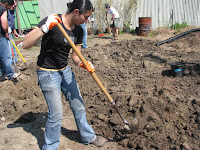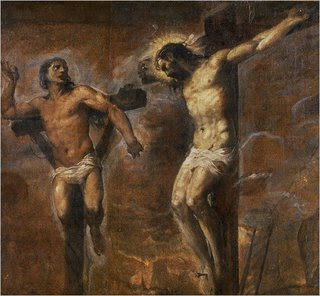
 A barren island. This is the sight we encountered when we took an air boat on Tuesday, March 16th, 2010 to a barrier island on the North Shore of Lake Pontchartrain in Louisiana. What is a barrier island? A barrier island is an island that is a buffer for the land when hurricanes come through. These barrier islands, not only help as a buffer, they also have wildlife that live on them, therefore keeping the ecosystem of the wetlands alive and vibrant. Barrier islands in Coastal Louisiana are also called wetlands. These wetlands/islands are also important because they prevent flooding by holding water much like a sponge. As stewards of creation (Gen 1:28) we must be aware of what we are doing to our earth and attempt to remedy the wrongdoings.
A barren island. This is the sight we encountered when we took an air boat on Tuesday, March 16th, 2010 to a barrier island on the North Shore of Lake Pontchartrain in Louisiana. What is a barrier island? A barrier island is an island that is a buffer for the land when hurricanes come through. These barrier islands, not only help as a buffer, they also have wildlife that live on them, therefore keeping the ecosystem of the wetlands alive and vibrant. Barrier islands in Coastal Louisiana are also called wetlands. These wetlands/islands are also important because they prevent flooding by holding water much like a sponge. As stewards of creation (Gen 1:28) we must be aware of what we are doing to our earth and attempt to remedy the wrongdoings. The barrier islands of coastal Louisiana are slowly deteriorating. This erosion is occurring because of several factors such as: hurricanes, human made levees to direct the Mississippi River from flowing in its natural course, and the drilling of natural oil in Coastal Louisiana. To uphold the dignity of those living in Louisiana and to uphold the tenant of Catholic Social Teaching, Care of Creation, we should work with them in helping rebuild not only their homes and cities but also their land.
What can we do? This is where our delegation came in. The first two days we were in Louisiana were dedicated to sorting long grass and planting these bunches of grass onto a barrier island. The barrier island that we planted on was human made by dredging the bottom of a lake to the top of the water so to create an island. Even though this is an expensive process, to dredge, it is a necessary to create land so that both the city of New Orleans can be protected and that the ecosystem in the wetlands can continue to exist. When we arrived to the island it was barren. When we left the island on Tuesday late afternoon new life was planted (the picture on the top right of this blog entry shows the island with what we planted). Our group planted 6,600 small plants that day. We left and saw a big change both in what we did and in our hearts. It was a blessing that God was using us as His vessels to continue life in New Orleans.








